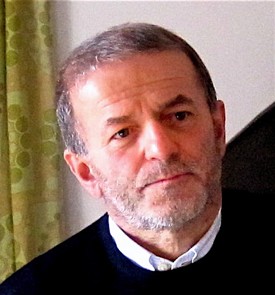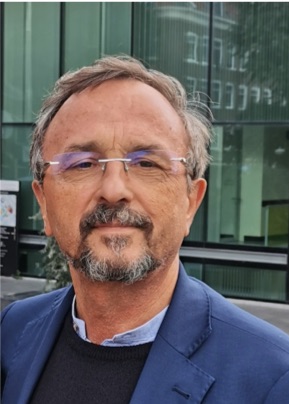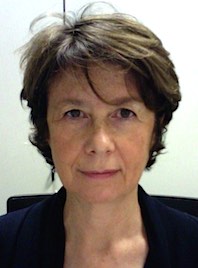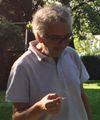Studying at the University of Verona
Here you can find information on the organisational aspects of the Programme, lecture timetables, learning activities and useful contact details for your time at the University, from enrolment to graduation.
Academic calendar
The academic calendar shows the deadlines and scheduled events that are relevant to students, teaching and technical-administrative staff of the University. Public holidays and University closures are also indicated. The academic year normally begins on 1 October each year and ends on 30 September of the following year.
Course calendar
The Academic Calendar sets out the degree programme lecture and exam timetables, as well as the relevant university closure dates..
| Period | From | To |
|---|---|---|
| 1st Semester | Oct 1, 2009 | Jan 31, 2010 |
| 2nd Semester | Mar 1, 2010 | Jun 15, 2010 |
| Session | From | To |
|---|---|---|
| Sessione straordinaria | Feb 1, 2010 | Feb 28, 2010 |
| Sessione estiva | Jun 16, 2010 | Jul 31, 2010 |
| Sessione autunnale | Sep 1, 2010 | Sep 30, 2010 |
| Session | From | To |
|---|---|---|
| Sessione autunnale | Oct 15, 2009 | Oct 15, 2009 |
| Sessione straordinaria | Dec 17, 2009 | Dec 17, 2009 |
| Sessione invernale | Mar 11, 2010 | Mar 11, 2010 |
| Sessione estiva | Jul 22, 2010 | Jul 22, 2010 |
| Period | From | To |
|---|---|---|
| Festa di Ognissanti | Nov 1, 2009 | Nov 1, 2009 |
| Festa dell'Immacolata Concezione | Dec 8, 2009 | Dec 8, 2009 |
| Vacanze Natalizie | Dec 21, 2009 | Jan 6, 2010 |
| Vacanze Pasquali | Apr 2, 2010 | Apr 6, 2010 |
| Festa della Liberazione | Apr 25, 2010 | Apr 25, 2010 |
| Festa del Lavoro | May 1, 2010 | May 1, 2010 |
| Festa del Santo Patrono di Verona S. Zeno | May 21, 2010 | May 21, 2010 |
| Festa della Repubblica | Jun 2, 2010 | Jun 2, 2010 |
| Vacanze Estive | Aug 9, 2010 | Aug 15, 2010 |
Exam calendar
Exam dates and rounds are managed by the relevant Science and Engineering Teaching and Student Services Unit.
To view all the exam sessions available, please use the Exam dashboard on ESSE3.
If you forgot your login details or have problems logging in, please contact the relevant IT HelpDesk, or check the login details recovery web page.
Should you have any doubts or questions, please check the Enrollment FAQs
Academic staff
Dal Belin Peruffo Angelo
 angelo.peruffo@univr.it
angelo.peruffo@univr.it
 franco.dellaglio@univr.it
franco.dellaglio@univr.it

Vallini Giovanni
 giovanni.vallini@univr.it
giovanni.vallini@univr.it
 045 802 7098; studio dottorandi: 045 802 7095
045 802 7098; studio dottorandi: 045 802 7095
Study Plan
The Study Plan includes all modules, teaching and learning activities that each student will need to undertake during their time at the University.
Please select your Study Plan based on your enrollment year.
1° Year
| Modules | Credits | TAF | SSD |
|---|
2° Year activated in the A.Y. 2010/2011
| Modules | Credits | TAF | SSD |
|---|
| Modules | Credits | TAF | SSD |
|---|
| Modules | Credits | TAF | SSD |
|---|
Legend | Type of training activity (TTA)
TAF (Type of Educational Activity) All courses and activities are classified into different types of educational activities, indicated by a letter.
Plant Biotechnology (2010/2011)
The teaching is organized as follows:
Learning outcomes
Module: BIOCOMBUSTIBILI
-------
The teaching module “biofuels” supplì basis for the identification and properties of fuels from different sources. Among these biofuels are considered in detail, namely bio-ethanol, bio.diesel and bio-hydrogen and the consequence of their use for environmental, production issues and vehicle traction. For each the production processes presently in use are defined as well as the biotechnological approach to their improvement with a major reference to crops, which are in common with food-producing processes (first generation biofuels). Furthermore, alternative sources of biomass are considered, having a lower dependence on food-producing processes. Particular emphasis is dedicated to unicellular algae and the procedures for quantitative and qualitative improvement of algal biomass through classical genetics and recombinant DNA procedures towards definition of a biofuel productive process economically sound and with low environmental impact.
Module: FITOBONIFICA
-------
--
Module: BIOREATTORI VEGETALI
-------
Mankind has used plants as a source of raw materials and medicines for thousands of years. From the earliest stages of civilization, plant extracts have been used to ob¬tain technical materials and drugs to ease suffering and cure disease. Since the late seventies, many valuable therapeutic and diagnostic proteins have been discovered through molecular biology research and molecular medicine, but widespread use of these molecules has been hampered by production bottlenecks such as low yields, poor and inconsistent product quality and a shortage of production capacity. In the late 1980s, the application of recombinant DNA and protein technology in plants al¬lowed the exploration of plant-based expression systems for the production of safer and cheaper protein medicines. Over the last decade, plants have emerged as a convenient, safe and economical alternative to mainstream expression systems which are based on the large-scale culture of microbes or animal cells, or transgenic animals. The production of plant-made pharmaceuticals and technical proteins is known as Molecular Farming. The objective of this course is to illustrate how to harness the power of agriculture to cultivate and harvest plants or plant cells producing recombi¬nant therapeutics, diagnostics, industrial enzymes and green chemicals.
Program
Module: BIOCOMBUSTIBILI
-------
1) definition of biofuels, biomass of origin. Bio-gas, bio-ethanol, bio-diesel and bio-hydrogen
2) Present procedures of production and legislation
3) Energy balance of photosynthetic organisms, upper limits of productivity, factors of loss of productivity, comparison with photovoltaaics.
4) Crops as biomass for biofuels. Present state and perspectives for improvement in crops and forst organisms..
5) Unicellular algae: advantages and disadvantages with respect to crops.
6) Biodiesel from algae
7) bio-hydrogen from algae
8) Molecular genetis in unicellular algae model system and productive systems. Procedures limiting engineering of algae.
9) Growth in photobioractors: different architevctures and limits for productivity.
10) Algae as CO2 scavengers.
11) Metabolic enginnering: light use efficiency.
12) lipid metabolism
13) electron transport and hydrogenases.
Module: FITOBONIFICA
-------
--
Module: BIOREATTORI VEGETALI
-------
• Protein expression systems in planta:
transient: plant virus as vectors
stable: nuclear transformation, plastid transformation
• Sub cellular target
• Organ specific expression (seed)
• Cell suspension and hairy roots
• Host plant and model
• “Food” and “non food” plants
• Green algi
• Molecules:
Antibodies
Vaccines
Antigens
Peptides
• Post translation modification in plants
Glycosilation in plants
• Quantification of recombinant proteins
• Biological properties of the molecules
• Extraction and purification processes downstream processes
• Clinical studies
Examination Methods
Module: BIOCOMBUSTIBILI
-------
two parts for this examination:
a) chose an artcle among a list supplied by the teacher and prepare a powerpoint presentation.
b)if the presentatio is satisfactory, a discussion on isuues within the program will be performed with the teacher.
Module: FITOBONIFICA
-------
--
Module: BIOREATTORI VEGETALI
-------
Oral examination
Type D and Type F activities
Modules not yet included
Career prospects
Module/Programme news
News for students
There you will find information, resources and services useful during your time at the University (Student’s exam record, your study plan on ESSE3, Distance Learning courses, university email account, office forms, administrative procedures, etc.). You can log into MyUnivr with your GIA login details: only in this way will you be able to receive notification of all the notices from your teachers and your secretariat via email and soon also via the Univr app.
Graduation
Deadlines and administrative fulfilments
For deadlines, administrative fulfilments and notices on graduation sessions, please refer to the Graduation Sessions - Science and Engineering service.
Need to activate a thesis internship
For thesis-related internships, it is not always necessary to activate an internship through the Internship Office. For further information, please consult the dedicated document, which can be found in the 'Documents' section of the Internships and work orientation - Science e Engineering service.
Final examination regulations
List of theses and work experience proposals
| theses proposals | Research area |
|---|---|
| Dinamiche della metilazione del DNA e loro contributo durante il processo di maturazione della bacca di vite. | Various topics |
| Miglioramento del profilo nutrizionale e funzionale di sfarinati di cereali mediante fermentazione con batteri lattici | Various topics |
| Risposte trascrittomiche a sollecitazioni ambientali in vite | Various topics |
| Studio delle basi genomico-funzionali del processo di embriogenesi somatica in vite | Various topics |
Attendance
As stated in the Teaching Regulations for the A.Y. 2022/2023, attendance is not mandatory. However, professors may require students to attend lectures for a minimum of hours in order to be able to take the module exam, in which case the methods that will be used to check attendance will be explained at the beginning of the module.













